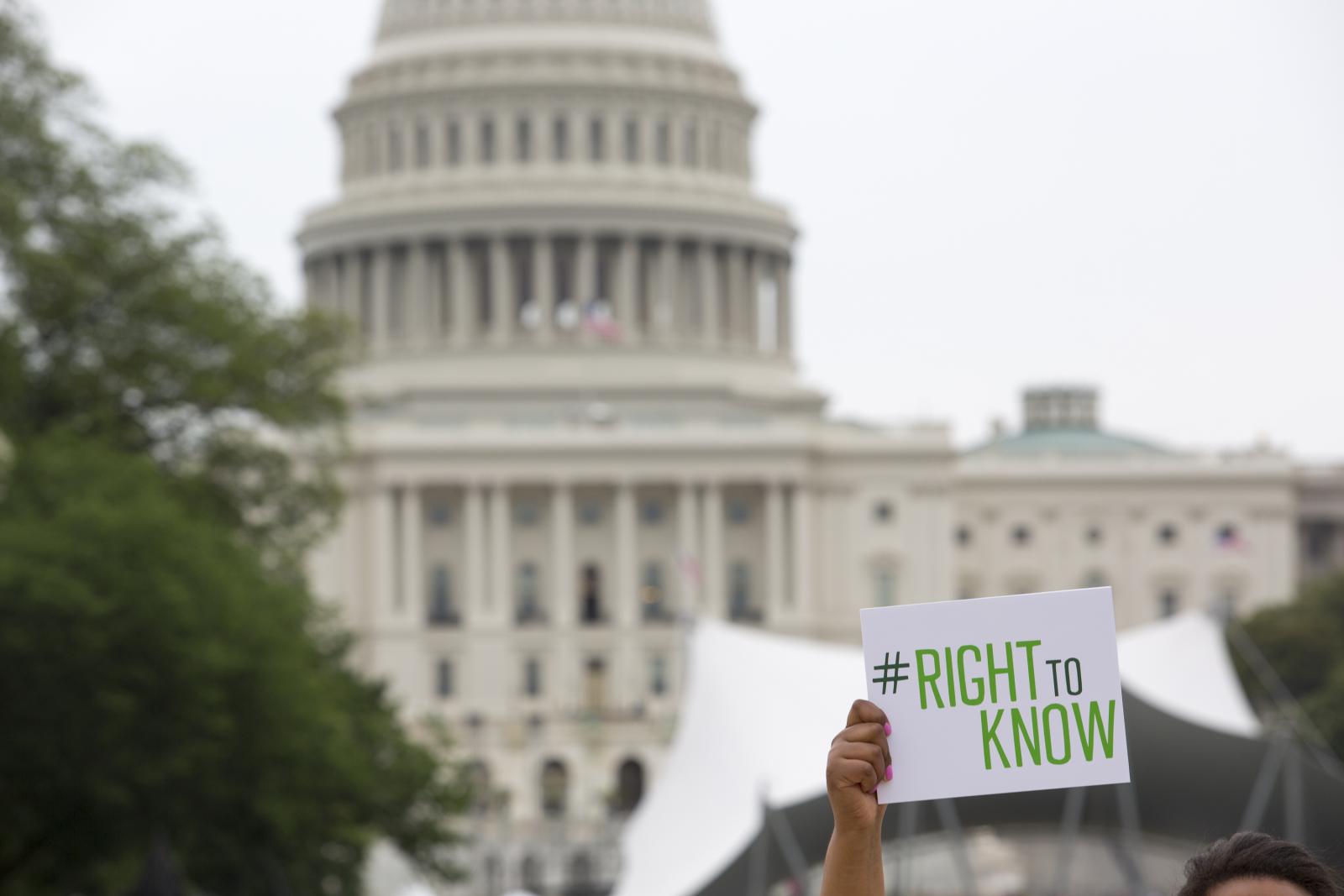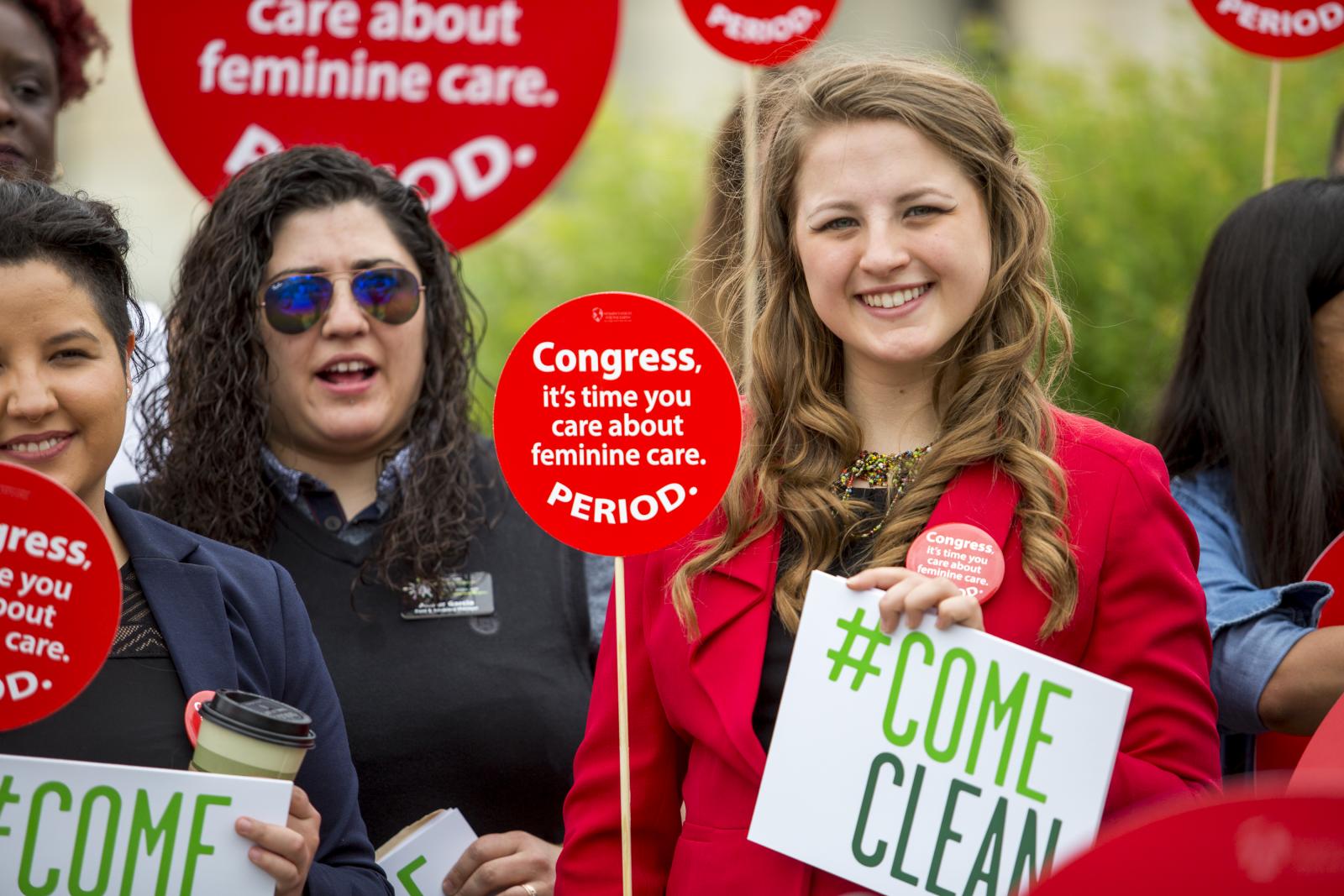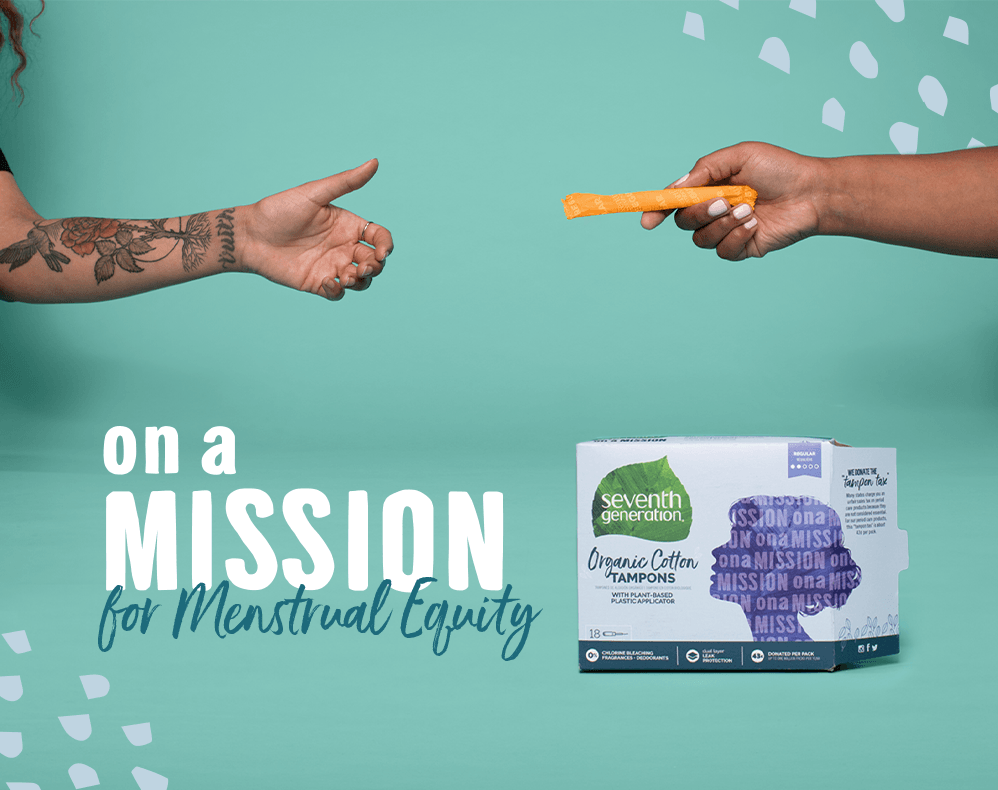If you’ve always had access to tampons, pads, cups or whatever it is you use to manage your period, you might be surprised to learn this isn’t the case for many people with periods right here in the United States.
A recent study found that close to two-thirds of low-income women surveyed in the St. Louis area said they couldn’t afford menstrual hygiene products within the last year. Instead of tampons or pads, people without access used diapers, paper towels or rags to care for their periods. Across the country, people who struggle to secure proper hygiene products risk of infection, missing school or work or having to choose between food and menstrual care products. The injustice of these realities is where menstrual equity comes in – and why it is so important, now more than ever, to fight for access to period care products here in the US. When we named our brand Seventh Generation, we made a commitment to the health of people and planet for this generation and future generations to come. This commitment includes standing alongside those championing women’s rights, and helping achieve menstrual equity is an important step in our journey towards a more equitable planet for all.
Menstrual equity, at its simplest, is equal access to menstrual hygiene products. As a value, menstrual equity contends that the 50% of people who get their period every month have the right to care for it affordably, easily and without shame. Think about it: you likely know someone who has struggled with accessing period care products at some point in their life – a friend, a roommate, a classmate or coworker. This global issue is very much a reality here at home in the United States. According to a research report in Obstetrics & Gynecology, more than one in five women in a major U.S. city couldn’t afford menstrual hygiene products. Menstrual Equity is about more than simple access—it’s about health and dignity. It’s about making sure that everyone who needs them will have access to menstrual products that are safe, clean, and free from any unnecessary ingredients. That’s a right we all deserve.

The phrase “menstrual equity” was coined by attorney Jennifer Weiss-Wolf, vice president at Brennan Center for Justice and author of “Periods Gone Public: Taking a Stand for Menstrual Equity.” While Weiss-Wolf developed the term to function at a policy level, menstrual equity has evolved into a movement backed by passionate advocates like Weiss-Wolf who believe in the access to period care products for all. The fight for government-led legislation continues, and champions of the menstrual equity movement have worked hard to break period taboos by using to efforts to get tampons, pads and cups into the hands of those in need.
In 32 of the 50 states here in the US, period care products are still taxed by the state at purchase while thousands of health and personal care items that are deemed ‘medical necessities’ are exempt. Items like Rogaine, Viagra and adult diapers can be purchased tax-free, while tampons, pads and pantiliners will cost you.
The sales tax on period care products may seem minimal on the surface, but the average menstruating person will use over 9,100 tampons in her lifetime, resulting in hundreds of additional dollars in sales tax alone.
The elusive language we’ve been given to talk about periods and the secrecy around using period products (who hasn’t snuck a tampon up their sleeve?) suggests having a period is something to hide. Menstrual equity blasts that notion; having your period should be safe to talk about without stigma or shame. In the words of our friends at Period Equity: periods should not hold anyone back, period.
If period products have always been available to you, chances are you don’t consider them to be “luxuries” in any sense. At most, they’re basic necessities. And yet, most assistance programs in the U.S. — the kind designed to help people in poverty — deem tampons and pads luxury products. It only gets worse: Other items on this “luxury” list include cigarettes and alcohol, as if using a tampon is on par with sipping a cocktail or going out for a smoke.
When everyone has fair access to menstrual products, we level the playing field — or, as Weiss-Wolf put it, we’re one step closer to participating in an equitable society.
Beyond providing access and stripping stigma, menstrual equity means that all people with periods have access to the information needed to make informed period product decisions that are best for their bodies. Our right to know what goes into the products we use in, on and around our bodies each day absolutely applies to the ingredients that come into contact with our body’s most sensitive areas. To this day, no federal law exists which requires consumer disclosure of all ingredients in tampons and pads. Ingredient knowledge and transparency are fundamental steps towards menstrual equity, so we continue to work alongside our friends and partners at Women’s Voices for the Earth to fight for accurate labeling on period care products. All people with periods deserve the right to make product decisions based on the ingredients, and access shouldn’t stand in the way.

At Seventh Generation, we’re on a mission to achieve menstrual equity for all – and we know we can’t fight for this alone. We’re partnering with organizations to fight for systemic change through targeted legislation and policies that eliminate the tampon tax and provide free access to period care products in public/government-controlled spaces.


